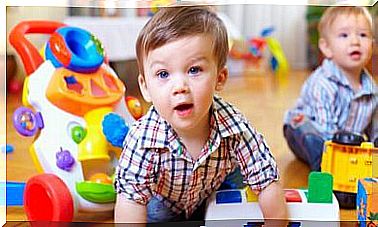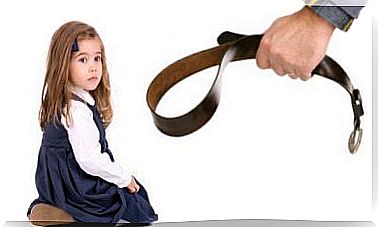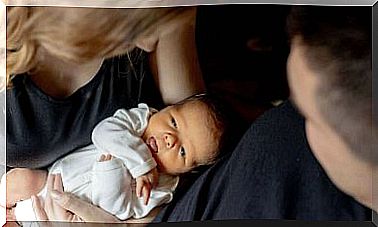Arguing In Front Of A Child Is A Bad Habit

In times of anger and anxiety, it is easy to make bad decisions. When, for one reason or another, we are frustrated or angry with our partner, it is easy to forget that arguing in front of a child is a bad habit that should be avoided.
Every couple quarrels sometimes, and even the happiest couples face difficult times. These are important and necessary moments when we learn a lot not only about the partner, but also about finding a common tone. Thus, arguing is almost inevitable.
However, there is a downside to disputes that we don’t always know because they end. It is good for each of us to keep in mind that in these situations, emotions often overcome and silence the mind, especially if the dispute is fierce in nature.
As a result, arguing in front of a child does not seem like the best possible option. If a child is present, the adult should be able to swallow their anger and postpone the conversation with the partner to a later date. With this simple precaution, significant harm to the child’s well-being can be avoided.
Why is arguing in front of a child a bad habit?
1. The child is not mature enough to understand the situation
Young children are not mature enough to face adult problems. Arguing in front of a child involves the child in a situation and on issues that are in no way his or her fault or responsibility.
Interpreting the words they hear can cause the child negative feelings such as guilt, insecurity, sadness, and fear.
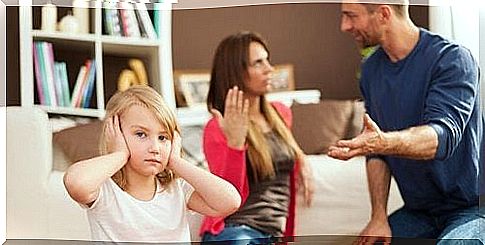
2. Parents set a bad example
Everyone knows children admire their parents and consider them their role models. What do we teach our child by arguing with someone we love greatly?
Parents should do the exact opposite and teach the child to appreciate discussion, understanding, and listening when it comes to resolving disagreements. No matter how angry we are, we must not lose control of our emotions in front of our children.
3. The quarrel confuses the child
A child may experience the need to choose a side when they see two close people arguing with themselves. Even if the child doesn’t show it, he or she may feel very confused after hearing both parents ’version of the situation.
At worst, these feelings can lead to the child no longer trusting their parents and starting to feel resentment or bitterness towards them. Naturally, repairing such damage to a parent-child relationship takes a lot of time.
4. Parental quarrel causes stress to the child
Witnessing a parental quarrel can be a traumatic experience for a child and lead to stress, leaving the child unable to focus on the school work and learning that requires him or her to invest.
Childhood stress can cause a variety of physical and psychological symptoms. It can even trigger serious ailments such as anxiety, panic attacks and learning difficulties.
5. Violence has many negative effects on the child
Unfortunately, quarreling can also lead to violence. In addition to the fact that violence causes harm to the victim, proving few things has more negative effects on the child than seeing the violent behavior.
Parental violence not only signals to the child that violence is a way to solve problems, it also has many serious negative effects on the child’s mental and emotional health.
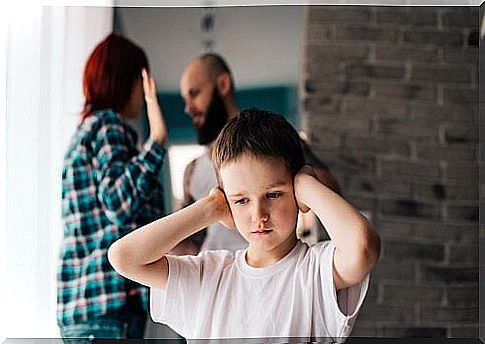
Is it good for a child to prove parental reconciliation?
Some say it is not necessary to avoid arguing in front of a child in all situations. They believe this is a way to show a child that there are also problems in life, and not all days are just dancing with roses.
It is important that the child is taught the right way to solve problems. This must be based above all on respect, empathy and communication.
When it comes to reconciliation, it is good to emphasize the good sides of the other parent and show affection, for example, with hugs. Once the peace has settled, the parents can tell the child that they have regretted what has happened and are trying to avoid being responsible for what will happen in the future. It is important for the child to feel that the family holds one is still a close unit.
Any form of argument in front of the child is only allowed if one can be sure that the interaction has been successful. Otherwise, there is a risk that the child will suffer from the risks mentioned above, which can be very detrimental to his or her well-being.





